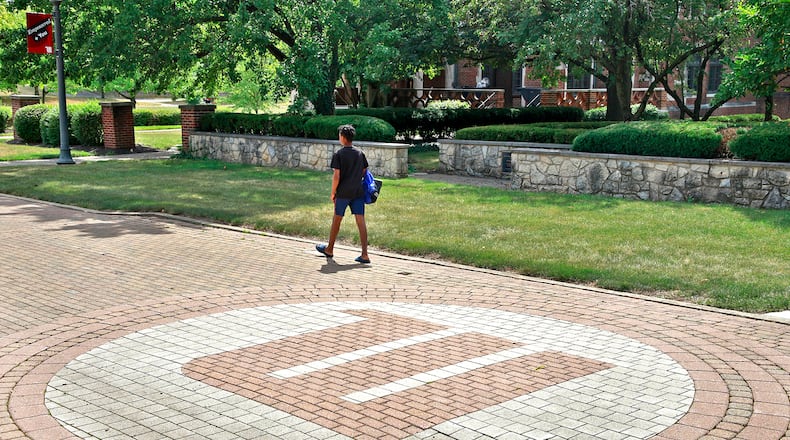The meeting from 9 a.m. to 5 p.m. should conclude the waiting game the university’s staff and faculty have been under for the last month when the university began discussing more severe cuts.
The university recorded a $17 million deficit in the 2022-2023 school year, according to its 990 IRS tax records examined by the Springfield News-Sun. Wittenberg spent about $96 million that year, and about $26 million was spent on salaries and benefits for staff.
The university’s 2023-2024 990 IRS forms are not yet publicly available.
One proposed plan staff and faculty are against would reduce faculty by up to 60% for the 2025-2026 school year, reduce staff by a quarter to a third, and possibly replace some of the work professors do with online learning platforms.
Faculty members Marie Bashaw, Adam Parker, Cathy Pederson, Scott Rosenberg and Thomas Taylor said in an August letter to the university’ president, Mike Frandsen, that they would prefer to retain as many in-person classes as possible and limit online classes.
“We believe this best meets the educational needs of our students and will help with retention,” those faculty members said.
Instead, the faculty members suggested increasing teaching loads, decreasing course releases to faculty, streamlining curriculum and adding some new programs from an online platform.
The letter suggested Wittenberg students take one only course per year through a partner platform.
Eliminating as many faculty as proposed could damage Wittenberg’s reputation, the letter argued and could create problems with the university’s accreditation and work with the Ohio Department of Higher Education.
“We hope that the faculty, Administration, and Board can work together to pull Wittenberg out of this financial crisis,” the faculty members said.
Universities nationwide are facing a smaller potential group of students, as fewer people graduate from high school and more young adults are choosing to go directly into the workforce than to college, and rapid inflation, which has hurt private businesses as well. The liberal arts university located in Springfield and founded in 1845 is no exception.
In the past few years in Ohio, Urbana University and Notre Dame College in Cleveland are among those that have closed.
About the Author

